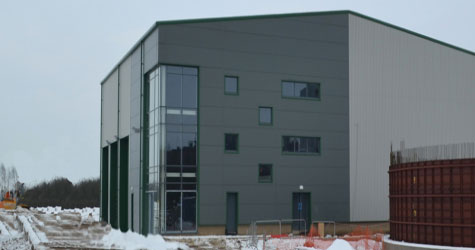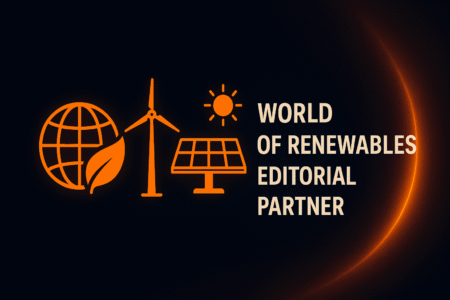A new state-of-the-art food waste plant has opened in County Durham, which will serve the north east’s need to recycle food waste and create renewable energy.
Emerald Biogas has announced the completion of its new anaerobic digestion (AD) plant, which is now ‘open for business’ and the first facility of its type in the region to begin operating.
Sponsors
Sponsors
The £8m facility, based at Newton Aycliffe Industrial Estate, is the North East’s first commercial food waste facility, and will generate enough energy to power 2,000 homes each year.
The plant was constructed by Entec Biogas GmBH using the latest technology to create the technologically advanced facility. Over the past 12 months the building programme has progressed on schedule. The successful installation of the combined heat and power (CHP) system and other plant equipment has enabled the testing phase to be completed on time and the plant is now processing food waste and creating energy.
Antony Warren, Director, Emerald Biogas said: “I am delighted with the progress made in terms of getting the plant to this stage. It is fantastic to see it up and running, as this truly is a one of a kind facility in the North East and the first in the region to begin operating. We are now in the position to accept and process unwanted commercial food waste and employ the latest AD technology to create a valued commodity that will be extremely beneficial to the local business and farming community.
“We are all excited for the positive journey ahead, with expansion a strong possibility, as we would like to see Emerald Biogas reach its full potential in the near future.”
Resource Management Minister Dan Rogerson said: “Dealing with waste and recycling properly is good for the environment and good for businesses, creating a stronger economy and jobs. Our AD loan fund has helped to support the development of this plant which will treat food waste, reduce greenhouse gas emissions and recycle valuable nutrients back to the land.”
Berhard Schulz, CEO, Entec, said: “We were really pleased to be able to deliver this project on budget and on time, despite the challenges the weather brought this winter.
The team has worked hard to ensure a successful commissioning phase and to enable the plant to start the next stage, processing waste and creating energy.”
The AD facility at Emerald Biogas can process card, plastics and other materials often associated with waste from supermarkets, fast food outlets, businesses and schools.
The heavy duty depackaging process can handle the more difficult waste streams such as supermarket waste, which is often triple packed and manufacturing waste streams. The residual materials are then sent to local recycling facilities, further diverting waste from landfill and contributing to the vision of a sustainable, circular economy.
Phase 1 of the plant will process 50,000 tonnes of the region’s food waste. Planning permission has already been secured to expand the capacity to four times the current size.
In addition to power generation, a digestate will be spread onto local farmland, which will increase organic matter as well as improving soil condition and structure. Used as an alternative to chemically manufactured fertilisers, the nutrients not only provide an economic benefit to farmers but also can increase the yield of their crops and reduce the carbon footprint of agriculture.
Formed in 2009, Emerald Biogas is owned by three partners with a wealth of experience in agriculture and recycling. Antony and Adam Warren are the owners of long established food and animal by products recycling business, John Warren ABP. Together with Ian Bainbridge’s diverse farming, land and resource management Agricore, they will provide the region with a beneficial sustainable resource.
John Warren ABP manages the collection for Emerald Biogas. With over three generations waste management experience and family owned, the company offers a food disposal service at Hamsterley and has progressed into the next generation of food processing.
The funding for the project was made available through the Rural Development Programme for England, which is jointly funded by Defra and the European Union.
Source: Emerald Biogas









